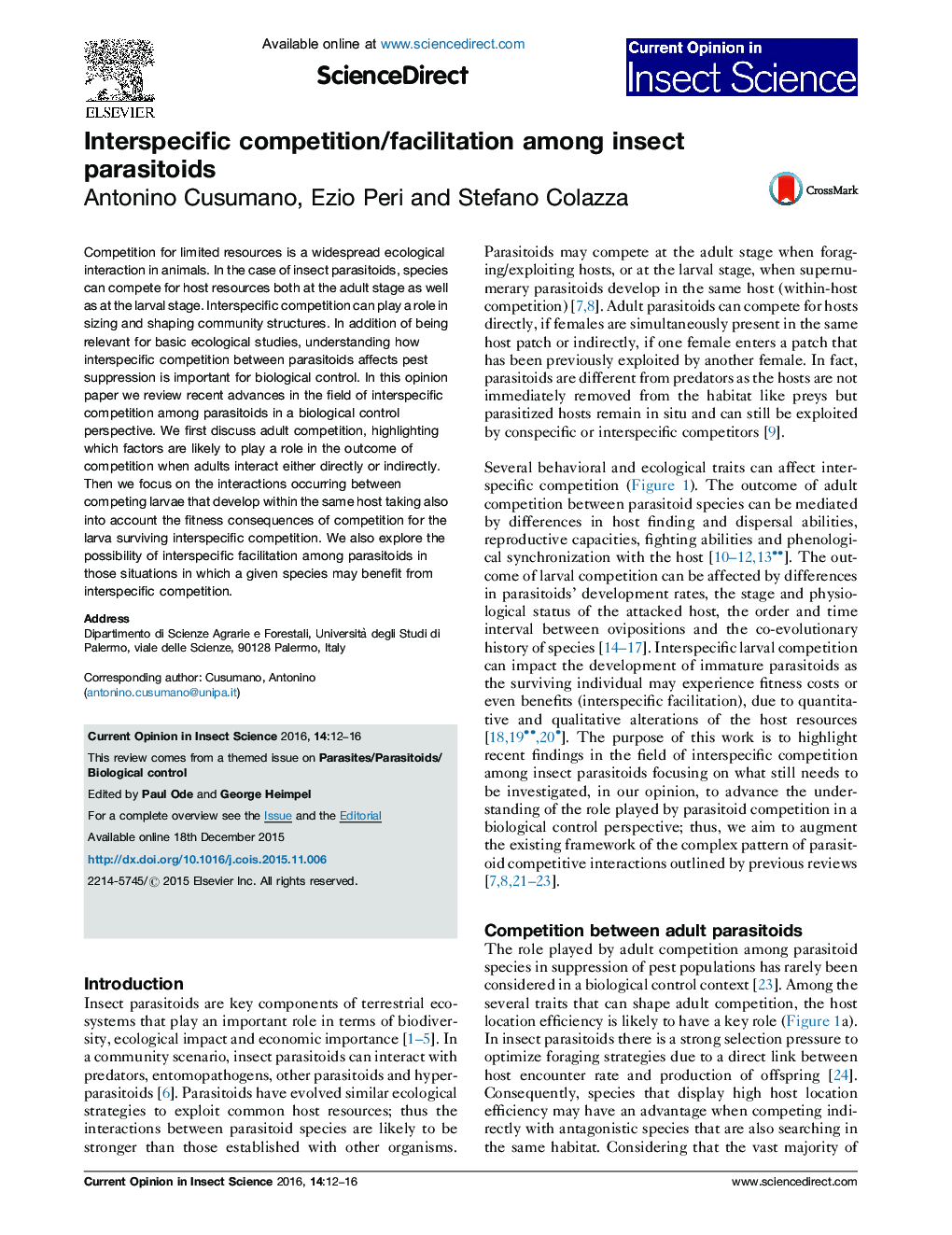| Article ID | Journal | Published Year | Pages | File Type |
|---|---|---|---|---|
| 4508182 | Current Opinion in Insect Science | 2016 | 5 Pages |
•Parasitoid species can compete at the adult and/or at the larval stage.•Interspecific competition can affect the fitness of the surviving parasitoid.•An integrated approach investigating adult, larval, and fitness-related effects of interspecific competition is encouraged in biological pest control.
Competition for limited resources is a widespread ecological interaction in animals. In the case of insect parasitoids, species can compete for host resources both at the adult stage as well as at the larval stage. Interspecific competition can play a role in sizing and shaping community structures. In addition of being relevant for basic ecological studies, understanding how interspecific competition between parasitoids affects pest suppression is important for biological control. In this opinion paper we review recent advances in the field of interspecific competition among parasitoids in a biological control perspective. We first discuss adult competition, highlighting which factors are likely to play a role in the outcome of competition when adults interact either directly or indirectly. Then we focus on the interactions occurring between competing larvae that develop within the same host taking also into account the fitness consequences of competition for the larva surviving interspecific competition. We also explore the possibility of interspecific facilitation among parasitoids in those situations in which a given species may benefit from interspecific competition.
Graphical abstractFigure optionsDownload full-size imageDownload as PowerPoint slide
